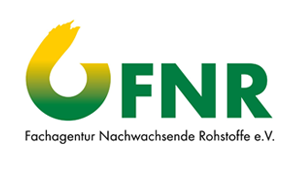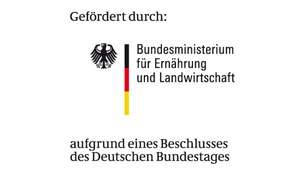Project
HMF from sugar

Production of the platform chemical 5-Hydroxymethylfurfural (HMF) on the basis of sugar for biological based returnable bottles and plasticizer
The replacement of the fossil-based plastic PET used for soft drink bottles by bio-based PEF still fails due to the lack of an efficient conversion of sugars to HMF. Our new innovative research approach to produce bio-based HMF shall solve this problem.
Background and Objective
The most promising candidate for replacing polyethylene terephthalate (PET, annual production amount about 50 million tons) is the bioplastic polyethylene furanoate (PEF) because of its structural resemblance. Its primary monomer 2,5-furandicarboxylic acid (FDCA) is produced from 5-hydroxymethylfurfural (HMF) via an oxidation process. However, for 100 years the conversion of carbohydrates to HMF is still not satisfactorily solved. Our new and innovative research approach shall solve this problem and pave the way to a bio-based economy.
Usually a carbohydrate solution is treated with an acid catalyst at higher temperature in:
- an aqueous system
- a non-aqueous system
- a bi- or multiphasic system
In an aqueous system many side reactions occur which limit the yield of HMF. Non-aqueous systems like organic solvents or ionic liquids suppress these side reactions, but product recovery and solvent recycling is difficult. A biphasic system has the advantage to use economic more favourable water as solvent and to simultaneous extract the product into the second phase thereby suppressing side reactions. Because of high water solubility of HMF no efficient biphasic systems is available, yet. A new extraction agent shows promising properties, its application may help to solve this problem.
Approach
Systematic research of the biphasic system and the acid catalyst for the conversion of sugar into HMF is required to optimise the reaction conditions. For an efficient process reprocessing and recycling of the different phases is required. In addition, the subsequent reaction to FDCA will be further investigated.
Results
In this project the solvent hexafluoroisopropanol (HFIP) was tested as extraction solvent for in situ extraction of HMF from acidic aqueous reaction solutions and as reaction solvent for the synthesis of HMF for the first time.
Because of the huge extraction capability of HFIP for HMF very high yields of around 90 % HMF can be achieved in two-phase reaction systems (hydrochloric acidic aqueous reaction phase and HFIP as extraction solvent), which is outstanding compared to the state of the art. On top of that HFIP can also be used in monophasic reaction systems. In a continuous system with ionic exchange resins as heterogeneous acidic catalyst around 80 % yield of HMF can be achieved. The usage of HFIP and other fluorous alcohols for production of HMF is patent pending (WO2016055608).
The oxidation of HMF to FDCA can be achieved efficiently with bimetallic gold/platinum catalysts in quantitative yields.
Thünen-Contact

Prof Dr. rer. nat. habil. Ulf Prüße
Duration
11.2013 - 2.2017
Publications on the project
- 0
Tschirner S, Weingart E, Teevs LN, Prüße U (2018) Catalytic dehydration of fructose to 5-Hydroxymethylfurfural (HMF) in low-boiling solvent Hexafluoroisopropanol (HFIP). Molecules 23(8):1866, DOI:10.3390/molecules23081866
- 1
Weingart E, Tschirner S, Teevs LN, Prüße U (2018) Conversion of fructose to HMF in a continuous fixed bed reactor with outstanding selectivity. Molecules 23(7):1802, DOI:10.3390/molecules23071802
- 2
Teevs LN (2018) Herstellung von 5-Hydroxymethylfurfural aus Kohlenhydraten in Kombination mit in-situ-Extraktion aus der wässrigen Reaktionsphase. Braunschweig: Technische Univ, Fakultät für Lebenswissenschaften, 142 p, Braunschweig, Techn Univ, Fakultät für Lebenswissenschaften, Diss, 2018
- 3
Weingart E, Teevs LN, Krieg R, Prüße U (2018) Hexafluoroisopropanol as a low-boiling extraction solvent for 5-Hydroxymethylfurfural production. Energy Technol 6(2):432-440, DOI:10.1002/ente.201700569
- 4
Weingart E (2018) Optimierung der Herstellung von 5-Hydroxymethylfurfural und anschließende Oxidation zu 2,5-Furandicarbonsäure. Braunschweig: Technische Univ, Fakultät für Lebenswissenschaften, 109 p, Braunschweig, Techn Univ, Fakultät für Lebenswissenschaften, Diss, 2018
- 5
Prüße U, Paul N (2018) Vom Weizen bis zur Flasche. Process(9):20-21
- 6
Kaufmann J, Prüße U (2017) Plastik aus Weizen und Mais. Braunschweiger Zeitg 72(96):1-2
- 7
Weingart E, Teevs LN, Prüße U (2017) Schlussbericht zum Vorhaben : Thema: Herstellung der Basischemikalie 5-Hydroxymethylfurfural (HMF) aus Zuckern als Ausgangsstoff für biobasierte Mehrweggetränkeflaschen und Weichmacher ; Laufzeit: 01.11.2013 bis 15.02.2017. Braunschweig: Johann Heinrich von Thünen-Institut, 42 p
- 8
Vorlop K-D, Prüße U, Krieg R, Teevs LN (2016) Improved 5-Hydroxymethylfurfural production using a multi-fluorinated alcohol compound : internationale Veröffentlichungsnummer WO 2016/055608 A1 [Patent]. Rijswijk: European Patent Office, 38 p
- 9
Vorlop K-D, Prüße U, Krieg R, Teevs LN (2016) Verbesserte 5-Hydroxymethylfurfural-Herstellung unter Verwendung einer mehrfach fluorierten Alkoholverbindung. Genf: Weltorganisation für geistiges Eigentum, 33 p

![[Translate to English:] [Translate to English:]](/media/_processed_/3/6/csm_Hintergrund-Ausschnitt1_9daaef6b89.jpeg)
![[Translate to English:] [Translate to English:]](/media/_processed_/3/6/csm_Hintergrund-Ausschnitt1_0bd7111163.jpeg)






